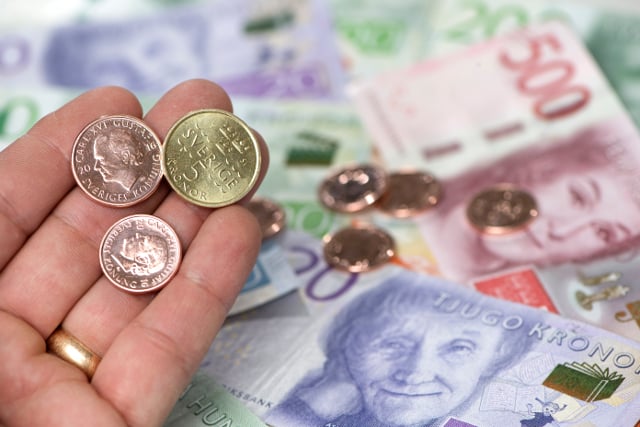The consumer price index rose from 1.7 percent in June to 2.2 percent last month, while consumer price inflation with a fixed interest rate rose from 1.9 percent to 2.4 percent – the latter exceeding the target for the first time since December 2010.
Some experts said that the news, which exceeded expectations, could potentially forecast an end to the aggressive monetary policy the country's central bank, the Riksbank, has been running for the past two years.
The Riksbank took the landmark decision to slash the key interest rate, the repo, below zero in February 2015, hoping that the strategy would boost inflation to raise the price of everyday goods and services which had been stagnant in recent years, and therefore improve the Nordic nation's economic prospects.
But until July, the inflation rate had been slow to reach its target of two percent.
“What we can see is that Swedish inflation has risen from the low levels we had a few years ago,” Anna Breman, chief economist at Swedbank, told the TT news agency.
“This strengthens our view that the Riksbank will raise interest rates in spring 2018.”
She said it was however unlikely the news would alter its strategy in the short term.
The Riksbank said in April that it would not adjust the record-low interest rate, currently at -0.50 percent, this year as previously intented, but would extend it until mid-2018.
It is also likely that inflation will drop after the summer boost – caused by increased air travel and charter holidays in July – but Breman said she thought it would continue to fluctuate around two percent.
The Financial Times quoted analysts at ING as warning that “we don't expect the July Swedish CPI data to prompt a reaction from the Riksbank as the central bank has a long history of erring on the cautious side due to concerns about a strong krona. Thus, any boost from a strong CPI release may prove to be one-off”.



 Please whitelist us to continue reading.
Please whitelist us to continue reading.